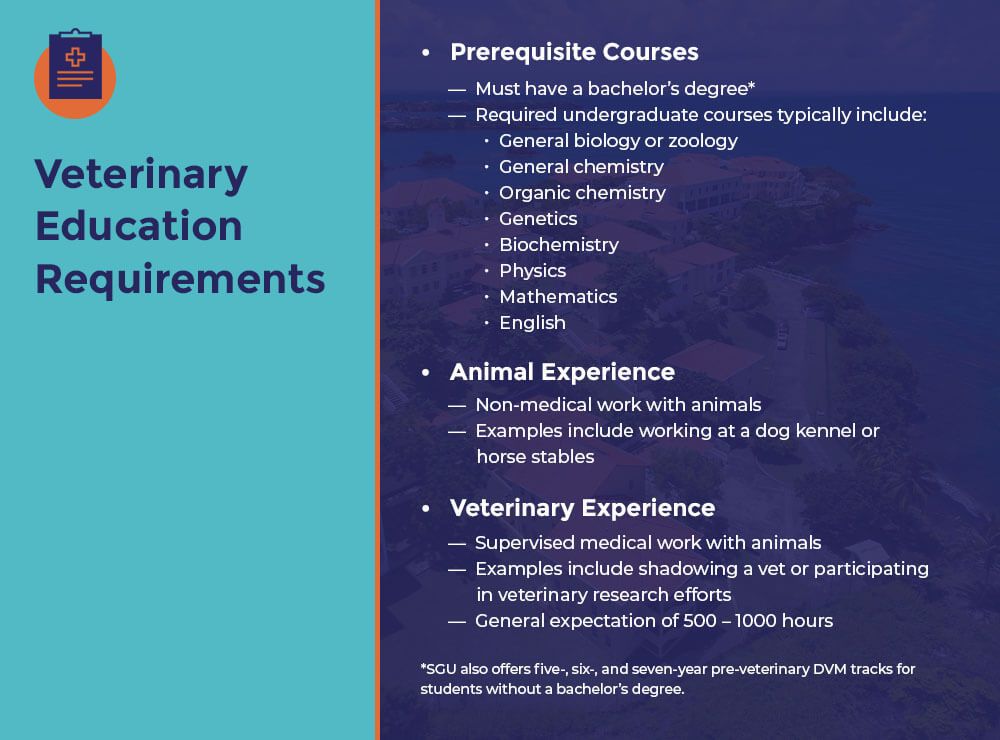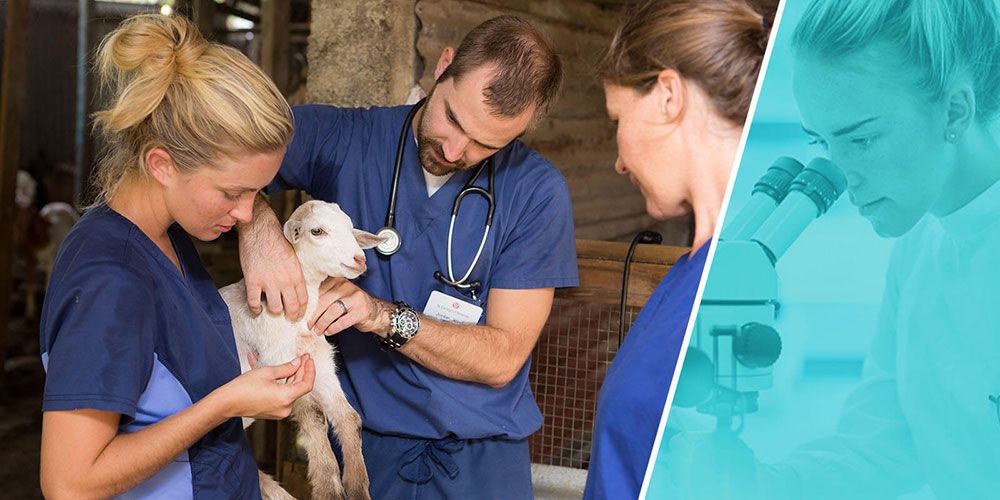If you have your sights set on getting into a Doctor of Veterinary Medicine (DVM) program, there are plenty of things you can be doing now to prepare. The path to becoming a veterinarian begins before vet school, so it’s important to stay organized as you begin to think about everything you’ll need to include in your applications.
Read on for a brief overview of the veterinary education requirements you should be working toward as a pre-vet student.

Core vet school requirements all veterinary hopefuls should know
If you’re lucky enough to find yourself enrolled at an undergraduate institution with a pre-veterinary track, you’ve likely been able to receive some clear-cut guidance on the veterinary education requirements you should be taking care of before applying to vet school.
But if you don’t have the assistance of a pre-vet counselor, you likely have questions. What courses are required for vet school? What other veterinary education requirements are there?
Consider this your simplified breakdown of the two core requirements you’ll be expected to meet.
Vet school prerequisite courses
Specific requirements may differ from one program to the next, but most vet schools expect applicants to have a bachelor’s degree. While your undergraduate major isn’t important, you do want to make sure you’ve completed all the necessary veterinary school prerequisites.
Required coursework will vary depending on the programs you apply to, but you can look into specifics using the Veterinary Medical School Admission Requirements (VMSAR) directory. In general, you can expect to complete a number of different science courses, such as biology, chemistry, and physics. Many programs also require mathematics, English, and humanities classes.
It’s also worth noting that some schools have minimum grade requirements, both for your science GPA and your overall GPA. Even the schools that aren’t as specific still have averages to consider. St. George’s University (SGU), for example, has an average cumulative GPA of 3.26 and an average science GPA of 3.14.*
Animal and veterinary experience
In addition to academic requirements, DVM programs also look for applicants who have amassed some animal and veterinary experience—and it’s important to note that there is a distinct difference between the two.
Animal experience generally refers to working around animals in a non-medical fashion while veterinary experience must take place under the supervision of a licensed veterinarian. Examples of the former include things like working at dog kennels or horse stables. The latter would include working in a clinic alongside a small animal vet or participating in veterinary research efforts.
Animal experience is certainly helpful, but veterinary experience is often prioritized. Programs may or may not specify how many hours of veterinary experience, but the average expectation is that they fall within the range of 500–1,000 hours.
Apply to vet school with confidence
As you continue down the path to becoming a veterinarian, you’re now better equipped to understand the veterinary education requirements you’ll need to complete if you want to get into a high-quality DVM program. That said, there are still a few more application components you’ll need to prepare for.
Learn more about what to expect with our article “Vet School Applications: Everything You Need to Know About VMCAS.”
*Institutional data based on previous six terms (as of July 2022).

